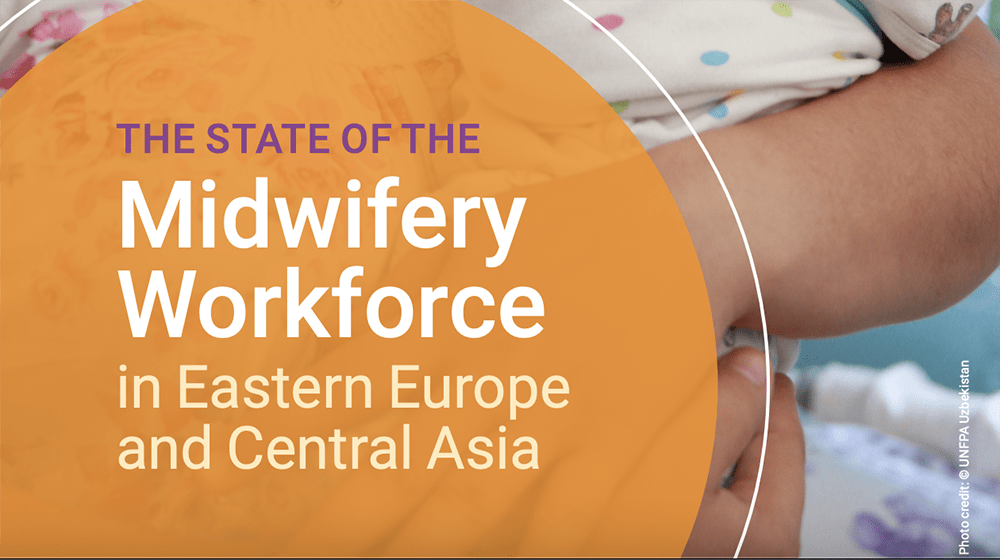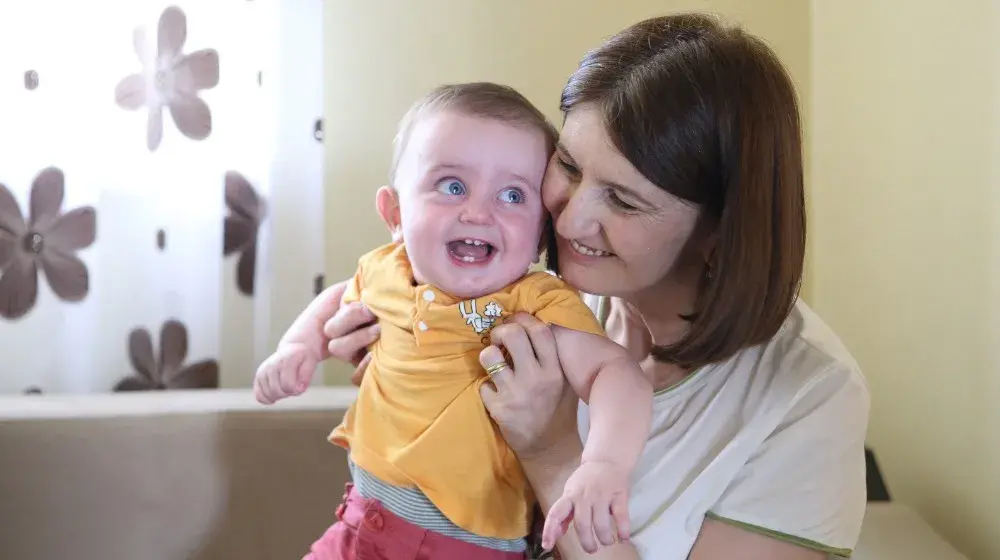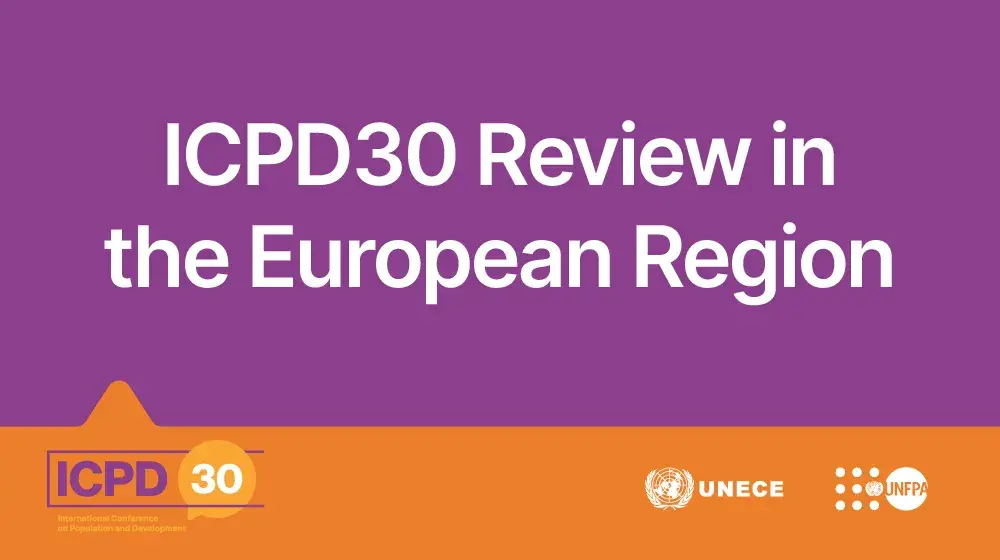ISTANBUL, 5 May 2023 – On the occasion of the International Day of the Midwife 2023, the UNFPA Regional Office for Eastern Europe and Central Asia and the WHO Regional Office for Europe hosted an online event to launch the first-ever report on the state of the midwifery workforce in Eastern Europe and Central Asia.
The event also served to present a Statement of Commitment, developed together with the calling for the expansion of midwifery in the region and better regulation, training and working conditions for midwives.
The report analyses midwifery data and profiles of 17 countries and territories in the region, highlighting specific challenges, gaps, and bottlenecks that need to be addressed.
The COVID-19 pandemic has impacted healthcare services worldwide, with frontline health workers facing unprecedented challenges. They have had to balance the need to care for their patients with the need to prevent the spread of the virus. They have had to adapt to new protocols and guidelines and adopt new technologies and techniques to minimize in-person contact while still providing high-quality care.
Among these remarkable health workers are midwives. Despite the tremendous challenges, midwives continued to provide essential care to pregnant women, mothers, and newborns during the pandemic. Their unwavering commitment and adaptability have been essential in supporting maternal and newborn health during these difficult times.
The report shows that midwifery is a vital solution to the challenges of providing high-quality maternal and newborn care for all women and newborn infants in all countries. The report shows that midwifery can avert about two thirds of maternal and newborn deaths.
It also highlights the many benefits of investing in midwifery education, including improved primary health care, quality of care and rapid and sustained reduction in maternal and newborn mortality. When midwives are properly educated, regulated and integrated within a multidisciplinary team and a functioning referral system, they can meet approximately 90% of the need for essential sexual, reproductive, maternal, newborn and adolescent health interventions across the life course.
The report finds that there are 137,000 midwives in Eastern Europe and Central Asia, or about 5.5 midwives per 10,000 people, which is higher than the global average of 4.4. While these numbers are encouraging, WHO/Europe's regional report on the health and care workforce in Europe, Time To Act, recently found that midwifery graduates have decreased by 30% in some countries of the WHO European Region. With an ageing workforce, investments and strategies to retain and recruit more midwives into the profession are of vital importance.
The State of the Midwifery Workforce in Eastern Europe and Central Asia report is an important reminder of midwives' vital role in maternal and newborn health and the urgent need to invest in their education, regulation, and integration within health systems.
The launch event featured WHO/Europe’s Regional Director, Dr. Hans Kluge and UNFPA’s Regional Director, Ms. Florence Bauer, followed by key highlights of the report and a panel discussion with country experiences from Norway, Sweden, and Kyrgyzstan.





